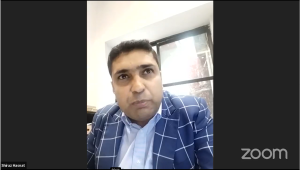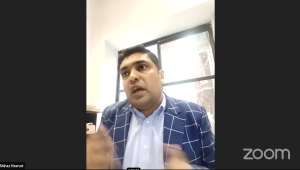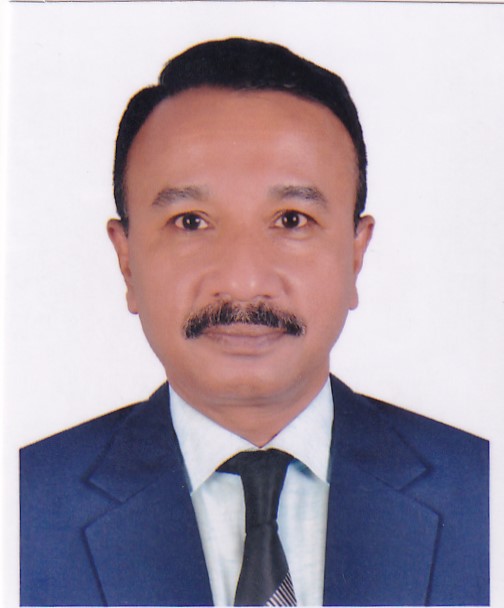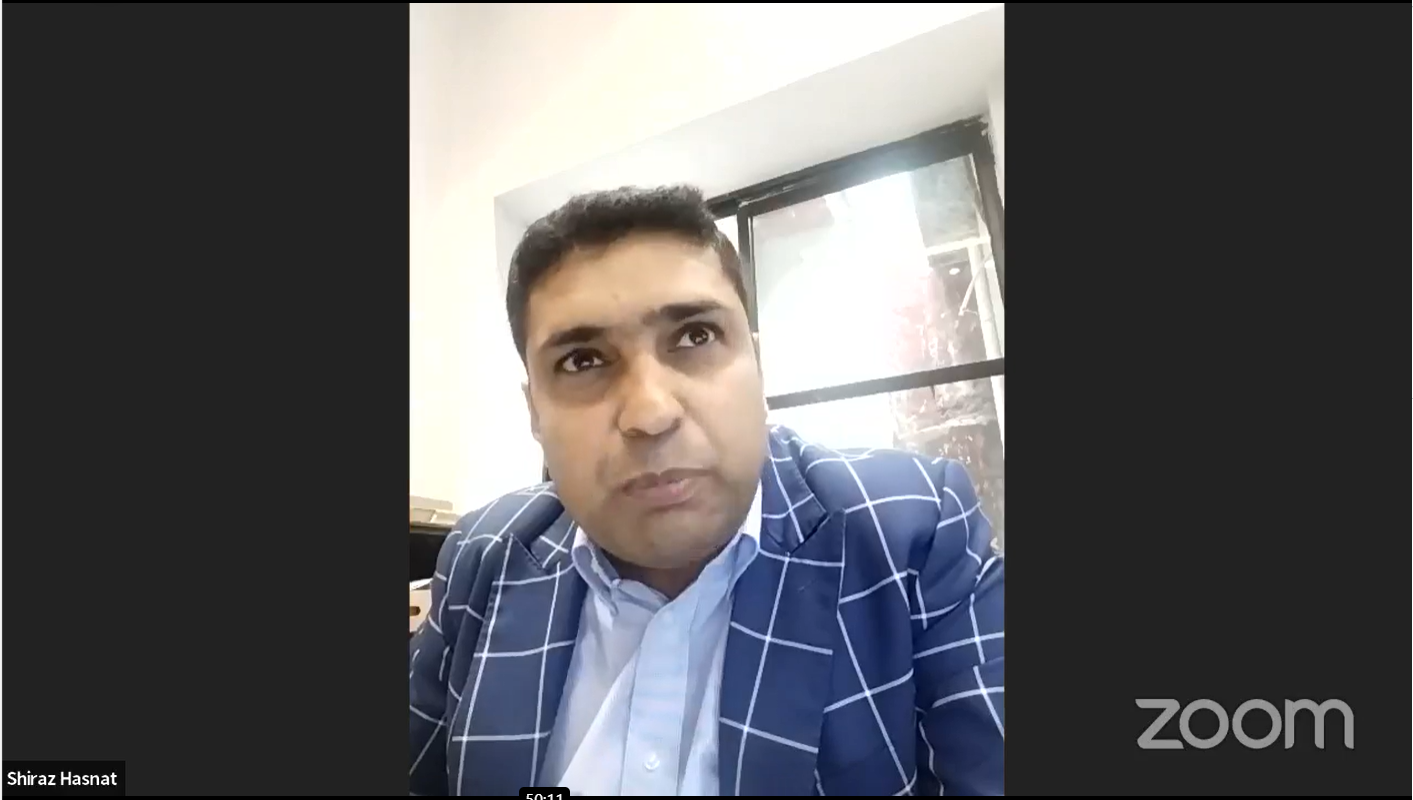
Journalists need to prioritize their own mental health.
Mr. Shiraz Hasnat, a Veteran Journalist, Shares his Journey of Overcoming Anxiety and Depression
By Dinnierose Raiko – AIBD Programme Manager
In the fast-paced world of journalism, where headlines change in an instant and deadlines are relentless, mental health often takes a backseat. Mr. Shiraz Hasnat, a seasoned journalist with over two decades of experience, recently took to AIBD’s Regional Webinar on Mental Health and Webinar for Journalists in the age of social media and Disinformation shedding light on a topic that’s been shrouded in silence for far too long: the mental health of journalists.
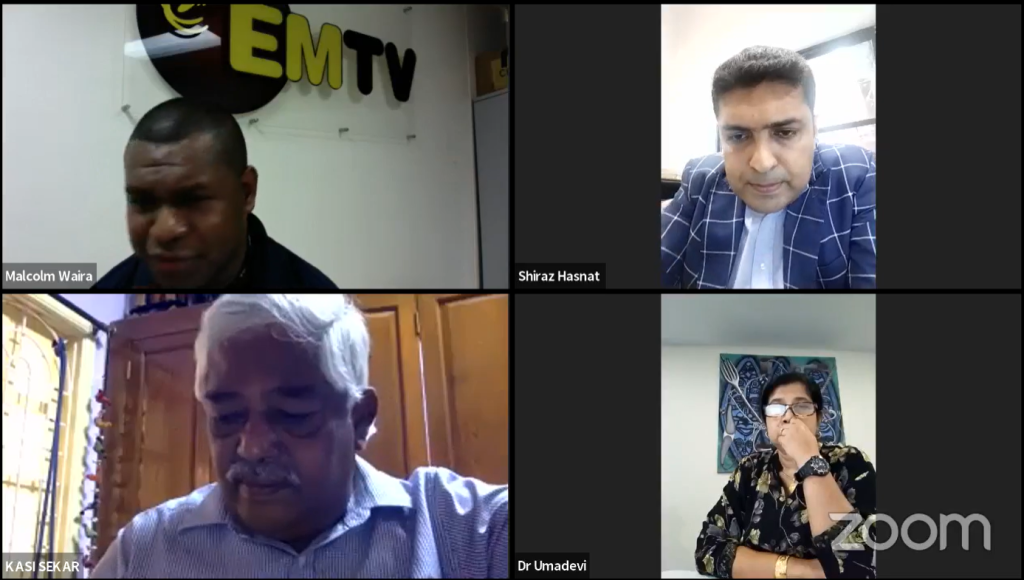
Top Row L-R: Moderator Mr. Malcolm Waira , Veteran Journalist Mr. Shiraz Hasnat Bottom Row L-R: Dr. Kasi Sekar , Head of Centre for Psycho Social Support in Disaster Management & Dr. Umadevi Ambihaipar, OBE, Director-Directorate for Social Change and Mental Health, Ministry of Health of PNG
Mr. Hasnat, known for his tenure at major news outlets such as Dawn News and Express 24/7, currently serves as the Bureau Chief in Lahore for HUM News. His impressive career is marked not only by his journalistic prowess but also by his commitment to press club leadership, having been elected Finance Secretary of the LAHORE Press Club twice, in 2017 and 2022.
Mr. Shiraz Hasnat sharing his battle with Anxiety and Depression
The journey Mr. Hasnat embarked on, however, has not been without its trials. He recounted a pivotal moment during a flight in 2016, an incident that triggered a spiral into anxiety and depression. “I realized that my own breath was actually stopping. I couldn’t be able to breathe myself,” he shared, vividly recalling the sensation of suffocation.
Unbeknownst to him, this episode marked the onset of a mental health struggle that would persist for years. “I increased my smoking, trying to gauge myself,” he admitted, grappling with the inexplicable emotions that engulfed him. It wasn’t until he sought professional help in Pakistan that he received a diagnosis of anxiety and depression, a revelation that brought both clarity and trepidation.
“I took the medicine… I slept for like 18-20 hours and then I woke up, I was quite fresh,” Mr. Hasnat recalled. However, the relief was temporary, and he found himself caught in a cycle of dependence on psychiatric medication. The impact on his professional life was palpable. “I was not able to perform my duties… I was not able to think on a number of lines,” he revealed, his struggle echoing the experiences of countless journalists facing similar challenges.
In Mr. Hasnat’s eyes, the roots of this crisis extend beyond personal struggles. He delved into the systemic issues plaguing journalists in Pakistan, including abysmal pay scales and grueling work hours. “The government allocated salaries [are] like $110,” he noted, highlighting the stark disparity between the basic cost of living and journalists’ meager earnings.
The challenges don’t end there. A constant barrage of information and stringent timelines have journalists on a perpetual treadmill. The pressure to respond to messages within minutes and the advent of monitoring systems measuring performance in microseconds contribute to an environment of relentless stress.
But perhaps the most daunting aspect is the pervasive taboo surrounding mental health in journalism. Mr. Hasnat lamented that many journalists are hesitant to seek help, fearing stigmatization and potential repercussions on their careers. “Most of the journalists… they don’t believe and they are willingly not sharing their mental tests and their mental anxiety with each other as well,” he observed.
“Most of the journalists… they don’t believe and they are willingly not sharing their mental tests and their mental anxiety with each other as well,” observed Mr. Hasnat.
Despite the uphill battle, Mr. Hasnat remains resolute in his mission to address this crisis head-on. Through sessions and engagement with fellow journalists, he strives to foster a culture where mental health is not only acknowledged but prioritized. His vision is one where journalists can find solace in seeking help, unburdened by the weight of societal judgment.
As Mr. Hasnat’s story illustrates, the mental health crisis among journalists is a complex issue entwined with systemic challenges. It calls for a collective effort from news organizations, support networks, and society at large to dismantle the barriers that stand in the way of journalists seeking the help they need.
In an industry that thrives on disseminating truth, it’s high time we confront the reality of mental health struggles faced by those who work tirelessly to keep us informed. Mr. Shiraz Hasnat’s journey is not only a testament to his resilience but a call to action for an industry that cannot afford to remain silent on this crucial issue.
Related Story: AIBD Regional Webinar on Mental Health and Wellbeing for Journalists in the age of Social Media and Disinformation – AIBD


